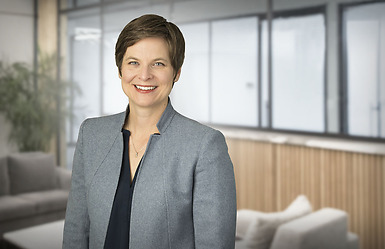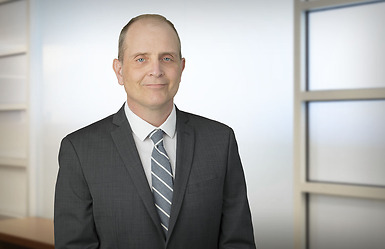An earlier version of this article was published in the November 2024 issue of Bench & Bar of Minnesota Environmental Law Update, Minnesota State Bar Association. This version has been revised with updated information.
On September 26, 2024, the Minnesota Public Utilities Commission (Commission) unanimously adopted the recommendations of the Minnesota Department of Commerce (DOC) and the Minnesota Pollution Control Agency (MPCA) regarding how the Commission should interpret new or amended terms added to Minn. Stat § 216B.1691 by H.F. 7, 93d Leg., Reg. Sess. (Mn 2024), ch. 7 (H.F. 7) including carbon free, partial compliance, and environmental justice areas. The Commission’s November 7, 2024 Order analyzes geographic considerations for environmental justice areas and details its decision to initiate a new docket to establish the criteria and standards necessary to calculate partial compliance with the Carbon-Free Standard.
Regulatory Background
On February 7, 2023, Governor Walz signed H.F. 7 into law. Among other changes, this act:
- Defined “carbon-free” as “technology that generates electricity without emitting carbon dioxide” (Minn. Stat. § 216B.1691, subd. 1(b));
- Created a carbon-free standard (CFS) requiring all electric utilities to have 100 percent of retail sales generated by carbon-free energy by 2040 (Minn. Stat. § 216B.1691, subd. 2(g)); and
- Requires the Commission to issue necessary orders detailing the criteria and standards it will use to measure an electric utility’s efforts to meet the CFS and determine whether the utility is achieving, or in partial compliance with, the CFS (Minn. Stat. § 216B.1691, subd. 2d(a) and (b)).
Following the passage of the CFS, the Commission opened Docket No. E999/CI-23-151 for the purpose of evaluating the impact H.F. No. 7 on Minn. Stat § 216B.1691 and issuing the necessary orders required under Minn. Stat. § 216B.1691, subd. 2d(a). On July 7, 2023, the Commission released a Notice of Docket Process and Timeline explaining that the Commission anticipates issuing a minimum of three Notices establishing comment periods to discuss different aspects of H.F. No. 7 and its impacts on Minn. Stat § 216B.1691.
The Current Proceeding
On November 8, 2023, the Commission issued a Notice of Comment Period requesting comments on following topics:
- How the Commission should interpret the statutory definition of “carbon-free;”
- How the Commission should determine the percentage of carbon-free electricity for partial compliance credit of generation resources and how to determine carbon-free electricity for partial compliance credit from market purchases; and
- How the Commission should operationalize the definition of “environmental justice area” in accordance with the CFS requirements
The Commission heard from more than 60 groups and received hundreds of comments from the public on topics related to the implementation of the CFS, such as which production methods should count towards a utility’s compliance with the new standard.
The primary issue discussed by commenters was how narrowly the Commission should interpret the statutory definition of “carbon-free.” Commenters who advocated for a plain language interpretation generally argued that the statute is sufficiently clear from ambiguity and the Commission does not need to provide further clarification to the definition. Proponents of the plain language interpretation argued that identification of carbon-free resources must begin at the point of generation and, to qualify as “carbon-free,” the generation of electricity cannot emit carbon dioxide. Under the plain language interpretation, only generation resources which do not emit carbon dioxide at the point of generation may qualify for partial compliance.
Many commenters advocated for the Commission to take a broad interpretation of “carbon-free” that builds off the generation resources listed in the Eligible Energy Technologies Standard, which include solar, wind, hydroelectric, hydrogen, and biomass. Other commenters recommended the Commission utilize a fuel life-cycle analysis to determine whether individual generation resources should be considered “carbon-free.” The Commission adopted the recommendations of the DOC and MPCA to commence record development in a new docket for several purposes, including to:
- Define the sources of and requirements for a life-cycle analysis when interpreting the statutory definition of “carbon-free” for combusted fuel generation resources without carbon capture that are carbon free or receiving partial credit consistent with the Commission’s order;
- Define sources of and requirements for sustainable and waste biomass; and
- Develop an accounting methodology to consider generation discharged from short, medium, and long duration storage assets.
The Commission also adopted the recommendation of DOC and MPCA that the Commission consider a fuel life-cycle analysis to determine if a generation resource qualifies for partial compliance (In the Matter of a Commission Investigation into a Fuel Life-Cycle Analysis Framework for Utility Compliance with Minnesota’s Carbon-Free Standard, Docket No. E-999/CI-24-352).
Upcoming Comment Periods
On October 31, 2024, the Commission issued a Notice of Comment Period and Update requesting comments on the following topics:
- When and how should utilities report preparedness for meeting upcoming CFS requirements?
- By which criteria and standards should the Commission measure an electric utility’s compliance with the CFS?
- What considerations should the Commission take into account regarding the double counting of Renewable Energy Credits (RECs) to meet multiple requirements?
- How should net market purchases be counted towards CFS compliance?
- Other issues or concerns related to this matter?
Initial comments addressing CFS compliance are due January 29, 2025; reply comments are due February 19, 2025. After the conclusion of the CFS compliance proceeding, the Commission will establish the final comment period this docket which will focus on the offramp process available to utilities should they be unable to achieve the CFS's benchmarks.




